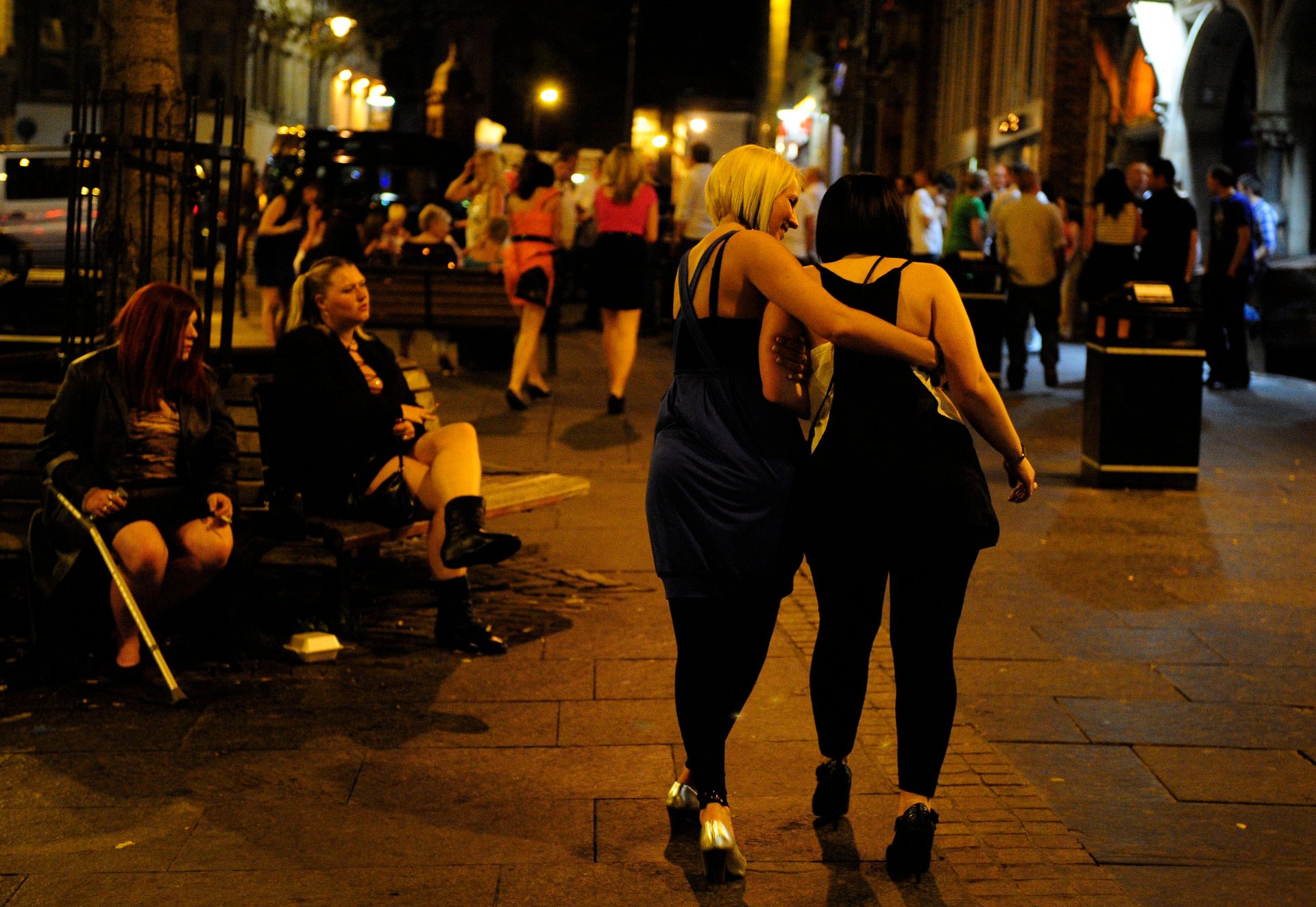Britain is using New Year’s Eve to decide how many “drunk tanks” to add in 2018
The UK’s taxpayer-funded National Health Service is considering setting up more mobile stations in cities to take care of seriously drunk people—an effort to ease the pressure on its jam-packed hospital ER departments.


The UK’s taxpayer-funded National Health Service is considering setting up more mobile stations in cities to take care of seriously drunk people—an effort to ease the pressure on its jam-packed hospital ER departments.
The cash-strapped NHS will monitor the success of its mobile drunk tanks over the New Year weekend as part of a national study to be released early in 2018, before deciding whether or not to expand them.
“NHS doesn’t stand for National Hangover Service,” NHS CEO Simon Stevens said. He had stern words for binge drinkers: “It is frankly selfish when ambulance paramedics and A&E nurses have to be diverted to looking after revellers who have overindulged and who just need somewhere to safely sleep it off.”
The NHS currently has some 16 drunk tanks (officially called Alcohol Intoxication Management Services) on the streets of Britain’s cities, staffed with paramedics, who can scoop up drunk people on the streets and monitor them. These “booze buses,” as they’ve been dubbed, are mostly large vans kitted out with wipe-clean beds.
Hospital admissions due to alcohol-abuse peak in England around the end-of-year holiday season. Normally about 15% of ER admissions are alcohol-related, according to the NHS, but at weekends and holiday times, that figure can shoot up to 70%.
Critics say that putting more drunk tanks on the streets is not the answer, as it doesn’t tackle the larger issue of out-of-control boozing. “By making this facility, it’s like saying ‘you can depend on the NHS to provide you with a safe place to sober up,'” Katherine Henderson, an emergency-medicine consultant told the BBC. She said it would be a better idea to talk to people about actually drinking less in the first place.